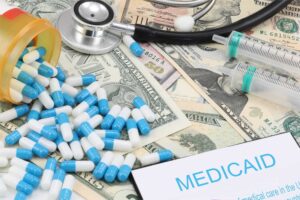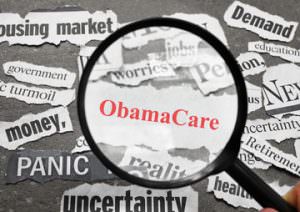A Third of American Adults Battling Chronic Diseases Suffer Food Insecurity, but What Can We Do?
Food insecurity is a term being used to describe the fact that, according to studies, many Americans can’t afford to pay for the good food or medications they require to stay healthy in the face of diseases such as “diabetes, asthma, arthritis, high blood pressure, stroke, a mental health problem, or chronic obstructive pulmonary disease.” […] Access to healthy foods plays an important role in treating and preventing diseases. Ali Karimian (CC BY-NC-SA 2.0)
Access to healthy foods plays an important role in treating and preventing diseases. Ali Karimian (CC BY-NC-SA 2.0)
Food insecurity is a term being used to describe the fact that, according to studies, many Americans can’t afford to pay for the good food or medications they require to stay healthy in the face of diseases such as “diabetes, asthma, arthritis, high blood pressure, stroke, a mental health problem, or chronic obstructive pulmonary disease.” What’s worse is that food insecurity itself causes plenty of conditions such as anemia, obesity and depression, among others.
But why does this have to happen in one of the richest countries in the world? The short answer is, it simply shouldn’t.
The Atlantic:
Some doctors have adopted the strategy of providing healthy food “prescriptions” to low-income children and their families. In 2010, pediatrician Shikha Anand collaborated with Wholesome Wave, a nonprofit, to establish the Fruit and Vegetable Prescription Program, which enables teams of doctors, nurses and nutrition educators to prescribe vouchers that can be redeemed for free produce at local farmers’ markets. Early data suggests the program is effective in increasing fruit and vegetable consumption and in reducing body mass index, a measure of weight, among overweight and obese children.
“There’s a growing body of evidence that this program affects food security,” Dr. Anand said. “It’s not just the effect of getting the prescription, it’s the effect of engaging in that conversation about the connection between food and health with that primary care team that you know and trust.”
The Fruit and Vegetable Prescription Program’s scope is limited—thus far it has enrolled just over 1,100 obese or overweight children in six states and the District of Columbia.
And even though the 2014 federal Farm Act tries to increase food stamp recipients’ access to fruits and vegetables, budget cuts and increased demand make it unlikely that food insecurity, and its attendant health problems, are unlikely to diminish anytime soon. Nor are those of us who live in states that refused to participate in the Medicaid expansion likely to see much of an improvement in our patients’ ability to pay for their medication—a recent analysis estimated that more than 32 million people nationally will remain uninsured after the Affordable Care Act is fully implemented. If [doctors are] going to succeed at treating… patients, it’s crucial [they] know about their financial problems—and figure out ways to help them manage their illnesses under difficult circumstances.
—Posted by Natasha Hakimi Zapata
Dig, Root, GrowThis year, we’re all on shaky ground, and the need for independent journalism has never been greater. A new administration is openly attacking free press — and the stakes couldn’t be higher.
Your support is more than a donation. It helps us dig deeper into hidden truths, root out corruption and misinformation, and grow an informed, resilient community.
Independent journalism like Truthdig doesn't just report the news — it helps cultivate a better future.
Your tax-deductible gift powers fearless reporting and uncompromising analysis. Together, we can protect democracy and expose the stories that must be told.
This spring, stand with our journalists.
Dig. Root. Grow. Cultivate a better future.
Donate today.








You need to be a supporter to comment.
There are currently no responses to this article.
Be the first to respond.